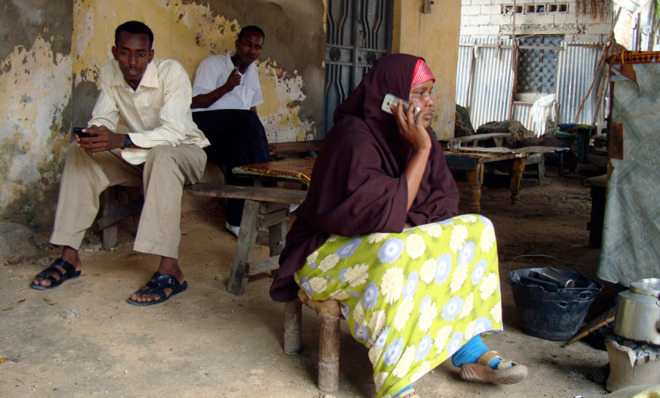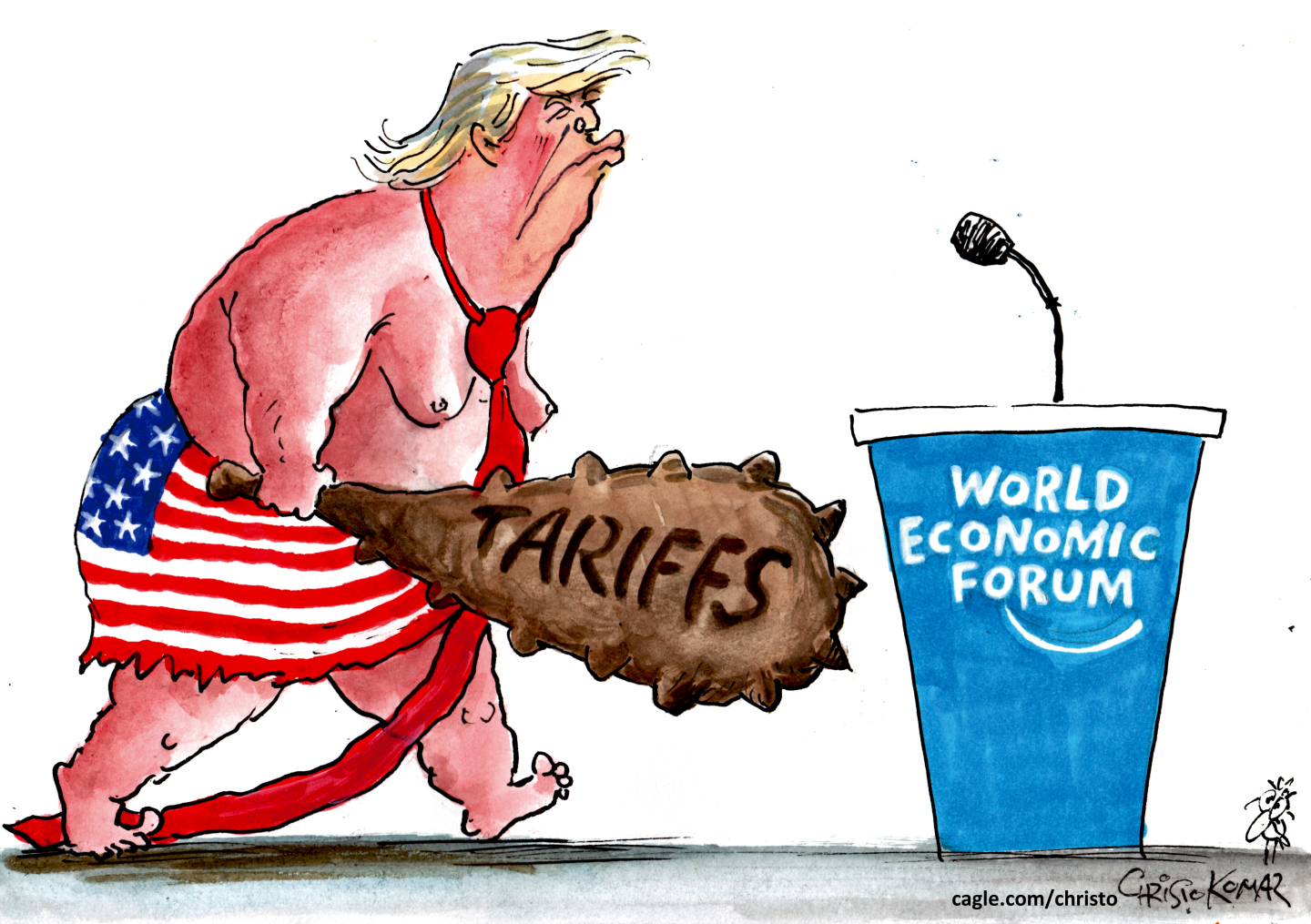Can Africa leapfrog the welfare state?
The all-too-real incompetence of most African states could allow Africa to avoid the Western trap of stifling government involvement


"Leapfrogging" is one of the most exciting concepts in international development. It is the idea that poor countries can skip ahead of the rich world because they are less encumbered by ingrained ideas and existing institutions.
Leapfrogging is already a reality in many sectors. Mobile phones took off in Africa much faster than elsewhere, largely because there were no landlines. And in turn, this allowed mobile payments and mobile finance to take off faster in Africa than anywhere else, largely because there was little dominant financial infrastructure. In Kenya, you can pay for basically anything with a mobile phone. And this isn't just fancy technology. Mobile finance threatens to thin the ranks of the unbanked (those without access to a formal financial system, including savings and credit), which is a prerequisite for a modern economy.
So where else might we see some beneficial leapfrogging? Well, the rich world's overbearing government control is badly in need of rethinking. Increasingly, fields like education and health care look like the places from which the innovation we need will come, but they are precisely the fields that are stuck in stultifying limbo thanks to stifling government control. You don't have to be a raging Randbot to recognize that bureaucratic control of large sections of the economy can be unhealthy.
The Week
Escape your echo chamber. Get the facts behind the news, plus analysis from multiple perspectives.

Sign up for The Week's Free Newsletters
From our morning news briefing to a weekly Good News Newsletter, get the best of The Week delivered directly to your inbox.
From our morning news briefing to a weekly Good News Newsletter, get the best of The Week delivered directly to your inbox.
The Western welfare state is in monumental trouble. The combination of lower-than-expected real growth and an aging population means the rich world's welfare states are all actuarially unsound. Large middle class entitlements mean government mostly shuffles money around instead of investing in the future.
Is there a way we can get what we want to get out of a welfare state, without those many drawbacks?
Africa may point to a way. The excellent book The Bright Continent: Breaking Rules and Making Change in Modern Africa, by the Nigerian-American journalist Dayo Olopade, reminds us that while the rich world struggles with the challenge of aging, Africa is alive with the opportunity of youth. The media clichés of a war-torn, famished continent only portray a tiny sliver of the reality of Africa. Africa is also a place with very fast economic growth, decreasing conflict, and increasing government accountability — not to mention a strong demographic dividend at a time when the rest of the world's demographic fortunes are waning.
Africa is the continent of the future. And just like Africa's poor telecoms and banking infrastructure allowed African countries to leapfrog the West in mobile finance, perhaps the all-too-real incompetence of most African states will allow Africa to leapfrog to Western welfare state.
A free daily email with the biggest news stories of the day – and the best features from TheWeek.com
Consider agricultural cooperatives. Subsistence farmers in Africa do not need much to stop treading water and build a prosperous future for themselves: training in best practices so their land can be more productive; a small safety net to ride out poor harvests instead of falling into food and economic insecurity; credit to invest in their future. But who needs a suffocating, wasteful, overbearing government? Agricultural cooperatives provide what these farmers need. The cooperative buys product from the farmers; it is locally run and managed. Pooled resources enable a safety net and credit; because it is locally run and managed by farmers, the safety net is not a welfare trap. The cooperative can negotiate with buyers upstream in the value chain so farmers can get more value added for their products, and provides training on best practices for the farmers. As Olopade writes, these bottom-up initiatives are yielding much better results in terms of improving people's lives than previous centralized, top-down initiatives to "help" farmers, whether from African states or international institutions.
This is but one example; there are many other instances of local, community-driven forms of voluntary mutual aid, which accomplish for many communities what the welfare state is supposed to offer — a safety net and a hand up — without the bureaucracy and bloat. Obviously Africa does not have the quality of life of Sweden, but we are merely at the seed stage of what may be a real phenomenon in the future.
This type of mutual aid is not new — if anything, it's back to the future. Indeed, as David T. Beito's book From Mutual Aid to the Welfare State: Fraternal Societies and Social Services, 1890-1967 recounts, before America had a welfare state, it had a welfare non-state. Before the Great Depression, mutual aid societies provided millions of people with health insurance, life insurance, retirement insurance, employment training, and other services. Because they were locally run and voluntarily funded, they were accountable and non-bureaucratic. Some mutual aid societies had their own health care systems. Notably, some of the most important mutual aid societies were founded by and catered to African Americans, providing real avenues of black empowerment.
The mutual aid system was by no means perfect, and there are reasons why it was replaced by the New Deal; but it is also instructive to think about the road not traveled. More importantly, the 21st century is not the 19th century. For nimble, accountable organizations, technology enables cost effectiveness, economies of scale, and innovation of the kind that bureaucracies seldom provide.
It is still an open question whether the seeds of mutual aid in Africa portend a brighter future, one where we can have the benefits of the welfare state with fewer costs. But it is still a question very much worth asking seriously.
Pascal-Emmanuel Gobry is a writer and fellow at the Ethics and Public Policy Center. His writing has appeared at Forbes, The Atlantic, First Things, Commentary Magazine, The Daily Beast, The Federalist, Quartz, and other places. He lives in Paris with his beloved wife and daughter.
-
 5 contentious cartoons about Donald Trump at Davos
5 contentious cartoons about Donald Trump at DavosCartoons Artists take on weaponized tariffs, a cheeky offering, and more
-
 Trump’s ‘Board of Peace’ comes into confounding focus
Trump’s ‘Board of Peace’ comes into confounding focusIn the Spotlight What began as a plan to redevelop the Gaza Strip is quickly emerging as a new lever of global power for a president intent on upending the standing world order
-
 ‘It’s good for the animals, their humans — and the veterinarians themselves’
‘It’s good for the animals, their humans — and the veterinarians themselves’Instant Opinion Opinion, comment and editorials of the day
-
 The billionaires’ wealth tax: a catastrophe for California?
The billionaires’ wealth tax: a catastrophe for California?Talking Point Peter Thiel and Larry Page preparing to change state residency
-
 Bari Weiss’ ‘60 Minutes’ scandal is about more than one report
Bari Weiss’ ‘60 Minutes’ scandal is about more than one reportIN THE SPOTLIGHT By blocking an approved segment on a controversial prison holding US deportees in El Salvador, the editor-in-chief of CBS News has become the main story
-
 Has Zohran Mamdani shown the Democrats how to win again?
Has Zohran Mamdani shown the Democrats how to win again?Today’s Big Question New York City mayoral election touted as victory for left-wing populists but moderate centrist wins elsewhere present more complex path for Democratic Party
-
 Millions turn out for anti-Trump ‘No Kings’ rallies
Millions turn out for anti-Trump ‘No Kings’ ralliesSpeed Read An estimated 7 million people participated, 2 million more than at the first ‘No Kings’ protest in June
-
 Ghislaine Maxwell: angling for a Trump pardon
Ghislaine Maxwell: angling for a Trump pardonTalking Point Convicted sex trafficker's testimony could shed new light on president's links to Jeffrey Epstein
-
 The last words and final moments of 40 presidents
The last words and final moments of 40 presidentsThe Explainer Some are eloquent quotes worthy of the holders of the highest office in the nation, and others... aren't
-
 The JFK files: the truth at last?
The JFK files: the truth at last?In The Spotlight More than 64,000 previously classified documents relating the 1963 assassination of John F. Kennedy have been released by the Trump administration
-
 'Seriously, not literally': how should the world take Donald Trump?
'Seriously, not literally': how should the world take Donald Trump?Today's big question White House rhetoric and reality look likely to become increasingly blurred
